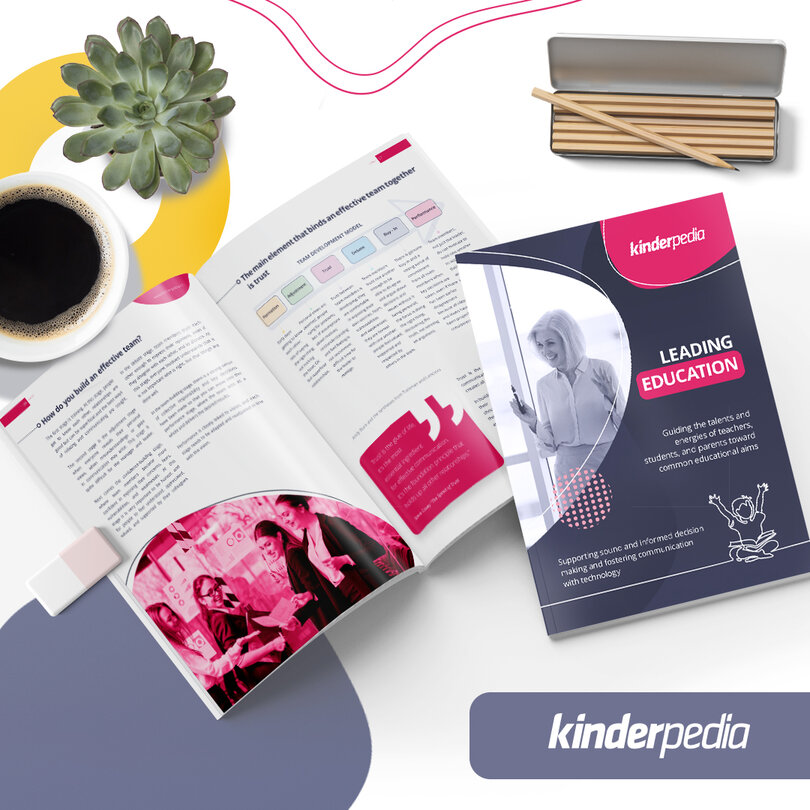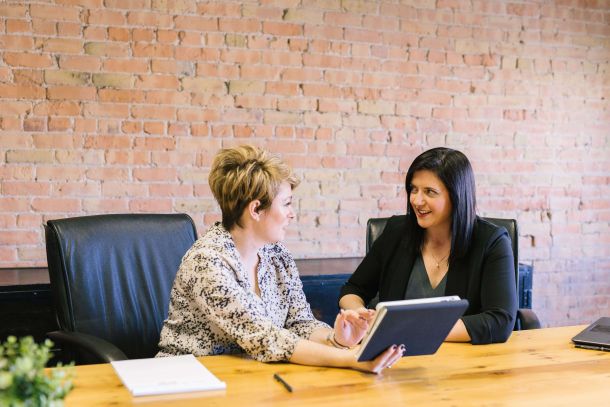
How can educational leaders build a trusting school environment
Building a trusting school environment based on factors that create a sense of safety for teachers and students can be challenging for leaders.
Building a trusting school environment based on factors that create a sense of safety for teachers and students can be challenging for leaders. How can educational managers and leaders do so?
The Wellbeing Institute held the Trust Summit from 8-12 November - an event that brought together 29 experts from around the world in a dialogue about how we build harmonious and deep relationships with ourselves and those around us.
On the fifth day - the day dedicated to trust in education - Dr. Paul J. Zak, entrepreneur, researcher, and professor at Claremont University, shared what trust is in a neurological context and how we can foster it in schools to help build a harmonious environment that facilitates learning.
How we interact with others is dramatically influenced by trust. Building a trusting school environment requires effective communication and openness.
When someone trusts us, our brain secretes a hormone - oxytocin - which has several interesting effects on our well-being. The secretion of this neurotransmitter also brings a sense of security and comfort that leads to increased feelings of empathy.
What does all this mean for those in a learning process? This process that starts with trust takes the discussion of learning beyond the transmission of information, to the motivation behind learning, to the benefits of collaboration and teamwork.
The confidence we feel gives us a sense of security that facilitates learning
Research by Dr. Paul Zak in Europe, North America, and Papua New Guinea has found that people tend to mirror the behavior of others. In other words, we respond with kindness when others treat us that way, we trust when we are trusted. Extrapolating these findings to educational institutions, we realize that organizing an environment of trust and team spirit starts with principals and teachers, but depends in fact on all school staff, not just them. Behavioral norms reverberate throughout the organization, and principals can set the tone through behaviors and rules that trickle down to teachers, pupils, caretakers, janitors - throughout the school community.
Returning to oxytocin, stress is the main neurological inhibitor of this hormone. On the other hand, a sense of psychological confidence and security creates a state of well-being and a spirit conducive to harmonious development. And teachers, administrators, and staff are very important in setting the tone: it is up to them to set the values that guide the school and create the learning environment based on trust, cooperation, and respect.
How can we create an trusting school environment?
The first step principals and teachers can take to create an environment conducive to learning is to greet students and parents in the morning: a handshake, a hug, a verbal greeting - all serve to convey to students that they are stepping into an area of safety and warmth, makes them feel seen and confirms that they belong. In this way, principals can dismantle the myth of the unapproachable person hiding in the office and replace it with the image of a warm, engaged person who is part of the community.
Off-campus connection opportunities aim to shape and strengthen the community. People are social creatures who need to belong to a group.
Leadership for Education serves as an introduction to a number of key educational leadership strategies.
In a trusting school environment, teachers no longer teach but guide students through the learning process
When students feel safe and trust both themselves and others, they absorb information faster and make mental connections more easily. This takes some of the pressure off teachers and allows them to make the transition from teaching children to guiding them in their learning. At the same time, in such a safe and trusting environment, teachers feel validated and feel they are doing their job well. This gives them the motivation to go further and to surpass themselves.
Dr. Zak stresses the importance of breaks in the teaching-learning process. Students can stay focused in 20-minute intervals that should be organized in stages: presentation, use of information in context, reinforcement. The learning process is a demanding one, which should be alternated with breaks. Just as in the muscle stimulation process, rest periods are very important. Therefore, short but intense periods of learning are most effective.
Learning is not a simple process but requires effort. Providing learners with a safe and trusting environment allows them to make mistakes and learn from their mistakes. On the flip side, criticism, especially in public, inhibits children's desire to learn. Psychological pain lasts longer than physical pain, Dr. Zak points out. Social criticism causes much longer-lasting pain than physical pain. Ridicule makes us fear mistakes. Students who are criticized won't have the courage to try, to propose ideas, and thus develop.
Owning up to mistakes - an important step in building a trusting school environment
Joining the discussion about building trust in schools is Simon Murray, who was awarded the Order of Australia for his valuable contribution to education through his role as a school principal for 27 years. Simon Murray spoke at the Confidence Summit about good practice for early career school principals and the importance of confidence in school community interactions.
Early career leaders need to build strong and healthy relationships, says Simon Murray. He advises principals just starting to get out of the safe space of the office and spend time with those in the school community. He stresses the importance of all school staff - teachers, but also janitors, caretakers, cooks. Managers should value them all and build the culture of their school with them.
Alongside openness, vulnerability, and appreciation - characteristics also mentioned by Paul Zak - Simon Murray places great importance on owning up to mistakes. He says we can't erase the mistakes we make, but it's our attitude that makes the difference.
Communication is extremely important. Email is a medium that helps us connect with people anytime and anywhere, but if we have the opportunity to communicate face-to-face, we should opt for this way of communicating. When we can look our interlocutor in the eye, the feeling of closeness and trust intensifies. Face-to-face communication also leaves less room for interpretation of tone and verbal intentions. Murray also gives managers some advice: don't text when you're angry. Or write them, but don't send them.
Character formation is the main mission of education. Children learn at school to write, to read, to count, but the central purpose of school is to shape them as people. And this is done in partnership with the family. Effective and transparent communication with parents makes them partners with teachers in their children's education. Find out how Kinderpedia supports communication between teachers, pupils, and families and how it makes parents active partners in their children's education.
What aspect of being a school principal brings them the most satisfaction? According to Simon Murray, the opportunity to shape the culture of a school and, in doing so, shape the character of the whole community - this is the aspect that animates and excites principals.
Dr. Paul J. Zak is a professor at Claremont University and is among the 0.3% most cited scientists in the world. His research - spanning more than twenty years - has taken him from the Pentagon to the offices of the world's most powerful companies, to the rainforests of Papua New Guinea. The newest company he founded - Immersion Neuroscience - is dedicated to measuring the brain's preferred activities in real-time, to improve areas such as education, advertising, and events in our lives.
Simon Murray has been a school principal for 27 years. He has received several recognitions for his pioneering work in education, including the Order of Australia Medal in June 2018 and the Alby Jones Gold Medal from the Australian Council of Leaders in Education in 2020. He was a founding member of the Positive Education Association of Australia. In 2021 he founded the Wellbeing Education Network, which aims to help young people overcome hardship and find their purpose.
Thus, a manager needs to build a trusting school environment and the ability to create a safe environment for both students and teachers in the institution.
An effective leader knows his or her strengths and uses them so that the set goals are achieved. At the same time, they manage to remain flexible and look at other styles that they have not yet mastered in order to get the big picture. When the leader juggles the advantages of each leadership style easily, he or she is able to quickly embrace the dynamic changes that inevitably occur. Together with their teams, leaders are challenged to keep pace with digitisation and new learning developments. It is important that children's educational needs are met at school and at home, and this can happen when the family-educational partnership is healthy. Find out why some of the most prestigious schools and kindergartens have chosen Kinderpedia and discover for yourself the benefits of the communication and management platform for education.

Kinderpedia
The complete communication and management solution for schools and childcare centres.
Simplifies teachers' work and brings parents closer to their children's school progress.
Recommended articles
Want to improve your center quality? Kinderpedia is here to help! Not only do we provide thousands of informational content pieces like blog posts, podcasts, webinars and more, we are also makers of the #1 Rated and Reviewed Childcare Software.







